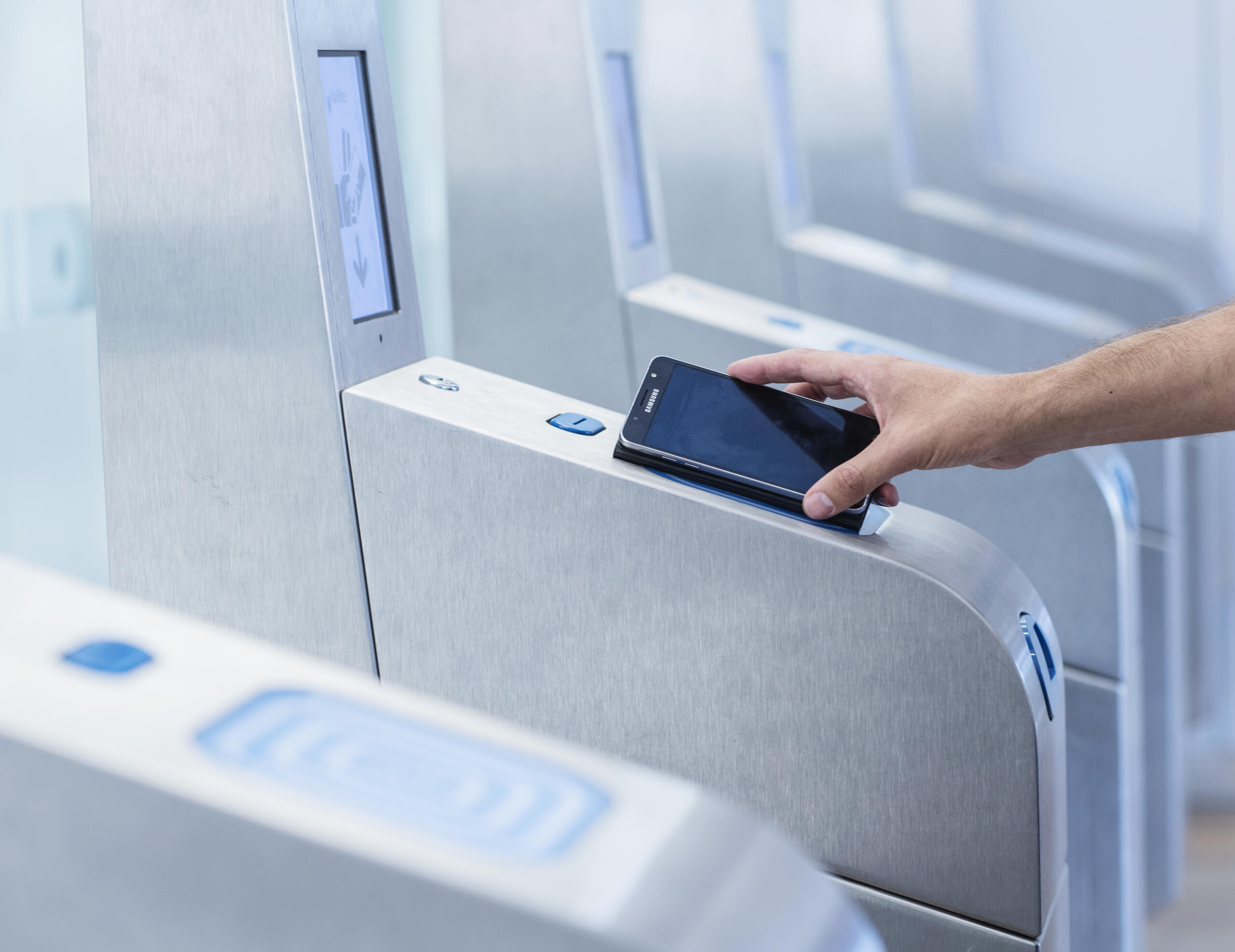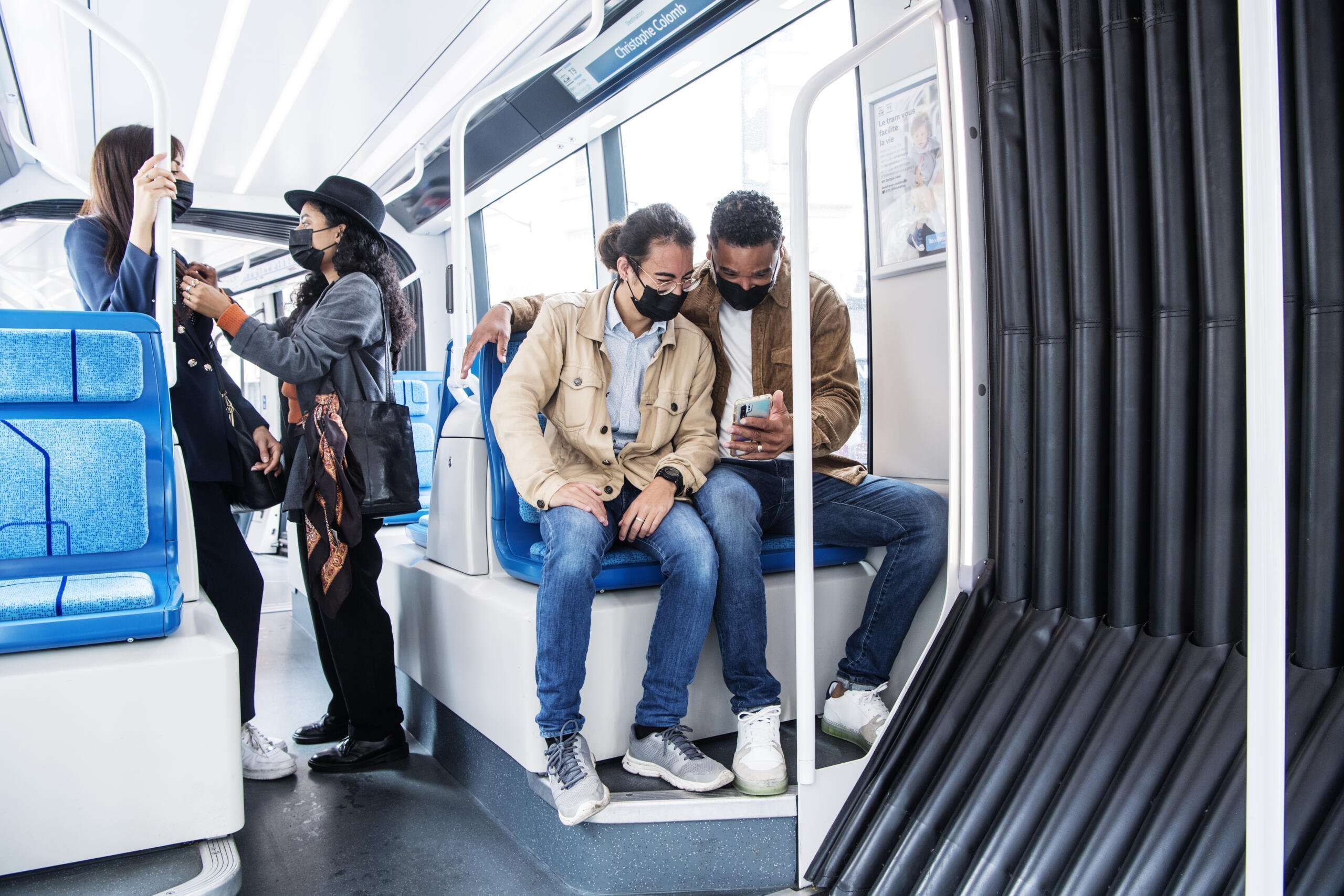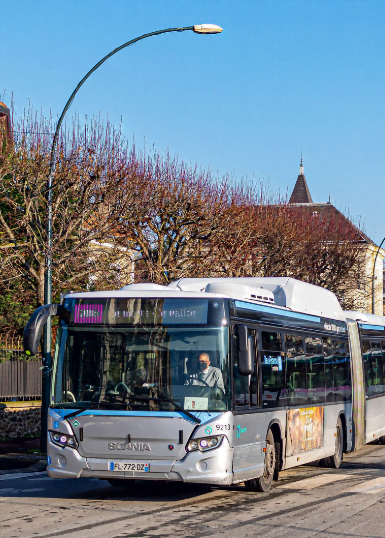A new MaaS strategy
New and innovative approaches are needed to meet the mobility challenges of tomorrow. Île-de-France Mobilités, the Paris Region Mobility Authority, reveals how it is preparing to meet them through its novel MaaS strategy.
Île-de-France Mobilités (The Paris Region Mobility Authority) is the integrated public transport authority of the Île-de-France public transportation network. Its missions include designing projects to improve the public transport system, financing the operations of the network through transport operators, and setting public policy objectives. Its Services and Marketing department oversees developing and organising new mobility services, ticketing, developing Mobility as a Service (MaaS) in Île-de-France, and enhancing the passenger information system.
Along with the digitalisation of transport, recent macro-trends are shaking up the mobility sector and transforming habits, such as the electrification of fleets and micromobility: this has given rise to a new ecosystem of private mobility players. To secure these trends, the regulatory landscape is constantly evolving, which represents an opportunity to adjust Île-de-France Mobilités’ MaaS policy by coordinating public transport services with new mobility services.
To tackle the strong societal challenges facing the region (such as urbanisation, pollution, traffic congestion, and gaps in accessibility), and to address travellers’ new needs, Île-de-France Mobilités has structured its MaaS approach in two parts. First, by designing services and policies faithful to the common good, and second, by coordinating this new ecosystem of private mobility players to leverage them to address these challenges.These two approaches are reinforced by the regulation and the fact that Île-de-France Mobilités is confirmed in its role as a Transportation Authority Organising for Sustainable Mobility.

Île-de-France Mobilités’ Pass Navigo is available on smartphone.
Credit: William Beaucardet / Ile-de-France Mobilités
A transportation authority organising for sustainable mobility
The best way to activate the concept of mobility as a service is to organise the market and private initiatives in coordination with those of the public sector. To achieve this, a 2019 law in France (LOM: Loi d’Orientation des Mobilités) has empowered Île-de-France Mobilités with a new organisational capacity for developing new mobility. Île-de-France Mobilités is exercising this new prerogative with the objectives of:
- Becoming a player in mobility as a service by offering MaaS digital media to travellers;
- Assuming the role of contracting authority for MaaS platforms comprising both a Regional Mobility Information Platform (PRIM) and an Information and Services System for ticketing (SIS) intended for persons who habitually use data and services;
- Organise mobility as a service more widely in the Île-de-France region and promote best practices and determine the main principles for interactions between entities, by the guidelines of public mobility policies.
To do this, Île-de-France Mobilités uses its various assets. This includes its ability to consolidate data relating to offers from all mobility entities; developing information tools for passengers and providing dedicated reservation platforms (i.e. platform for on-demand transport); its authority in pricing policy for public transport, the development of a new ticketing system integrating various mobility offers; actions to promote the development of multi-modal processes through contractual mechanisms; certification through labelling, supervision, coordination or promotion, as well as investments in physical inter-modal infrastructure.
In recent years, Île-de-France Mobilités contributed to organising the market of carpooling and car-sharing mobility services by its key goals by launching:
- A carpooling support system through a financing agreement with key players in the field. On average, carpooling counts 2.3 people per car compared to 1.1 people per car in Île-de-France – this initiative helped reduce pollution and urban congestion on the roads of Île-de-France;
- A car-sharing label, which aims at encouraging car-sharing players (cars and scooters) to offer a fleet of clean vehicles, improving the quality of the service, and partnering with cities to provide access to dedicated parking spots. It is also the first step for them to integrate Île-de-France Mobilités’ MaaS, which must abide by the standards of the label.
In addition to those initiatives, the LOM reinforced Île-de-France Mobilités’ dual responsibilities of (1) having a MaaS offer and (2) being a coordinator of the MaaS ecosystem in Île-de-France.

Passengers in a streetcar at the Porte de Choisy station in Paris, France.
Credit: William Beaucardet / Ile-de-France Mobilités
A MaaS platform fuelled by new regulations
As the umbrella authority for all sustainable mobility in Île-de-France, Île-de-France Mobilités is responsible for ensuring that each traveller always gets the right information and the right services to address a seemingly obvious dilemma: what means of transport to use to get around as easily and quickly as possible in a region that offers a wide variety of mobility services.
The Public Transportation Authority (PTA) shall ensure the existence of an information service for users, covering all modes of transport within their territory. Fuelled by the LOM, Île-de-France Mobilités expanded its efforts on MaaS development by adding an application layer to the existing ticketing layer of public transportation which covers:
- Multimodality: the application layer makes it possible to easily display the diversity of mobility options available in the Ile-de-France region. Île-de-France Mobilités established two levels of integration, namely (i) “Trip planning” which lets you plan a trip using the route planner algorithm, and/or “Map Around Me”, which lets you see where the different mobility options are available on a map and can redirect you to the service, and (ii) ticketing integration, which lets you book and uses the service directly from the app. The Climate Law, approved in August 2021, imposes route recommendations based on environmental criteria (highlighting the lowest impact trip in terms of greenhouse gas emissions);
- Intermodality: (a) through the development of seamless routes when combining several modes (ie public transport and bicycle), and (b) by deepening links between the infrastructure and the digital world through the creation of exchange hubs;
- Data: which helps Île-de-France Mobilités better steer its mobility policies. The data collected is an important source of information and insights that can help measure whether the policies put in place are effective and how the next policy should be defined.
With this in mind, it is clear that the PTA can on the one hand aggregate the mobility options available on its territory and, on the other hand, define the dedicated infrastructures and mobility hubs – two sides of a policy that make up the foundations of mobility as a service.
Cyclically, the data aggregated reinforce and enlighten the relevance of policy choices made by the transport authority, creating a continuous feedback loop that sustains the achievement of the PTA’s goals.
This strategy is linked with a partnership strategy to promote the emergence of MaaS in Île-de-France and, thus, the achievement of Île-de-France Mobilités goals.
Partnering up
Île-de-France Mobilités operates a three-fold partnership strategy which aims at increasing MaaS’s adoption in line with existing European regulations and Île-de-France Mobilités’s goals.

A ScaniaCitywide bus from
Île-de-France Mobilités.
Credit: Mohamed Sy / Wikimedia Commons
The first part consists of promoting good practices and clarifying the main principles of interactions between mobility entities in Île-de-France to guarantee the best possible service to the user and to support sustainable economic models that implement mobility as a service to benefit the general interest. This was achieved through the creation of the “Reference Guide for MaaS in the Île-de-France Region”. The second part aims to create a Regional Mobility Information Platform (PRIM) which is a one-stop shop that centralises data (60+ static datasets, 5+ API) and services around mobility to help feed the ecosystem’s MaaS applications and tools.
The last part focuses on opening an Information and Services System for ticketing (SIS). In line with the Loi d’Orientation des Mobilités (LOM) law, Île-de-France Mobilités has initiated the opening to the distribution of its products. MDMS (Multimodal Digital Mobility Services) can partner up with Île-de-France Mobilités and are now able to sell public transport tickets.
Conclusion
Île-de-France Mobilités is more than ready to meet the major mobility challenges of tomorrow, making sure to address the concerns of all stakeholders within the transport ecosystem. To effectively prepare for future developments, the mobility authority is implementing the following measures:
- Continue pushing forward the MaaS ecosystem, seen as essential to promptly meet the incoming travel demand for the 2024 Summer Olympics;
- Facilitate the reversibility of the mobility data obtained and the handover phases of the platforms, as well as preparing for competition in the public transportation sector;
- Think about intermodal spaces and potential links with new forms of mobility, such as envisioning the transport stations of tomorrow as intermodal exchange hubs and preparing future infrastructure (Grand Paris Express) in line with this vision;
- Achieve the objectives of the European Green Deal through a range of initiatives also developed by Île-de-France Mobilités, including the outlined MaaS policy.
About the authors
Aurélien Belhocine is Project Manager at Île-de-France Mobilités working on MaaS contracts, partnerships, and on the Regional Information Platform for Mobility of Île-de-France Mobilités (PRIM). He received his Metropolitan Strategy and Governance master from SciencesPo and has over half a decade of experience in mobility and MaaS strategy.
